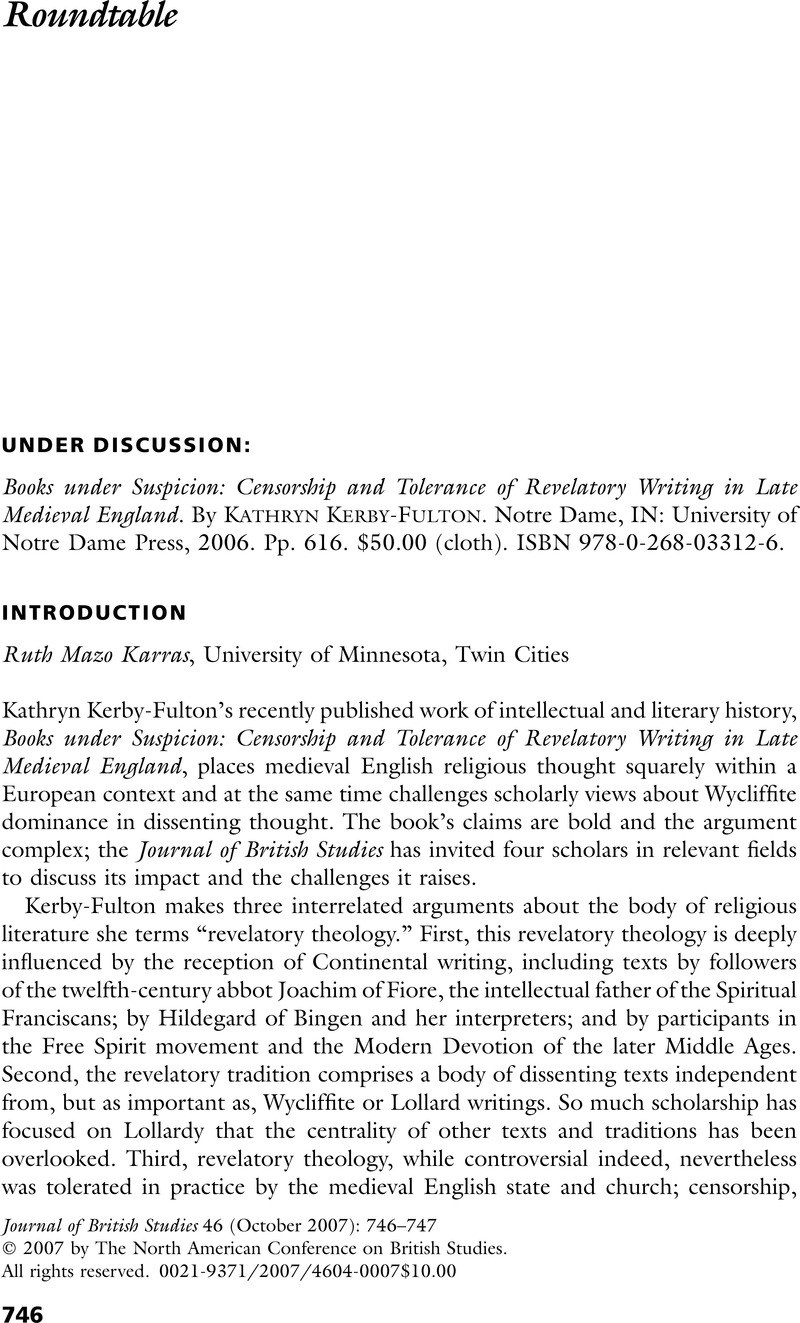No CrossRef data available.
Published online by Cambridge University Press: 21 December 2012

1 On inquisition in England (and providing further support for this view), see Forrest, Ian, The Detection of Heresy in Late Medieval England (Oxford, 2005)CrossRefGoogle Scholar; on European connections with Bishop's Lynn, see Parker, Kate, “Lynn and the Making of a Mystic,” in A Companion to the Book of Margery Kempe, ed. Arnold, John H. and Lewis, Katherine J. (Cambridge, 2004), 55–73Google Scholar.
2 Brentano, Robert, The Two Churches: England and Italy in the Thirteenth Century, 2nd ed. (Berkeley, 1988)Google Scholar.
3 Binksi, Paul, “The Crucifixion and the Censorship of Art around 1300,” in The Medieval World, ed. Linehan, Peter and Nelson, Janet (London, 2000), 342–60Google Scholar.
4 Jean-Claude Schmitt, “Images, Imagination and the Orders of Time,” as yet unpublished plenary address to the Neale Colloquium on “The Unorthodox Imagination in Late Medieval England,” University College London, March 2006.
5 Craun, Edwin D., “Fama and Pastoral Constraints on Rebuking Sinners: The Book of Margery Kempe,” in Fama: The Politics of Talk and Reputation in Medieval Europe, ed. Fenster, Thelma and Smail, Daniel L. (Ithaca, NY, 2003), 187–209Google Scholar.
6 Lerner, Robert E., The Heresy of the Free Spirit in the Later Middle Ages (Notre Dame, IN, 1972)Google Scholar.
7 See testimony of Grazide Lizier before the inquisitor and bishop Jacques Fournier in 1320, discussed and edited in Dronke, Peter, Women Writers of the Middle Ages (Cambridge, 1984), 203–10, 265–69Google Scholar.
8 Boyle, Leonard E., “Innocent III and Vernacular Versions of Scripture,” in The Bible in the Medieval World: Essays in Memory of Beryl Smalley, Studies in Church History, subsidia 4, ed. Walsh, Kate and Wood, Diana (Oxford, 1985), 97–107Google Scholar.
9 McSheffrey, Shannon, “Heresy, Orthodoxy and English Vernacular Religion 1480–1525,” Past and Present, no. 186 (2005): 47–80CrossRefGoogle Scholar.